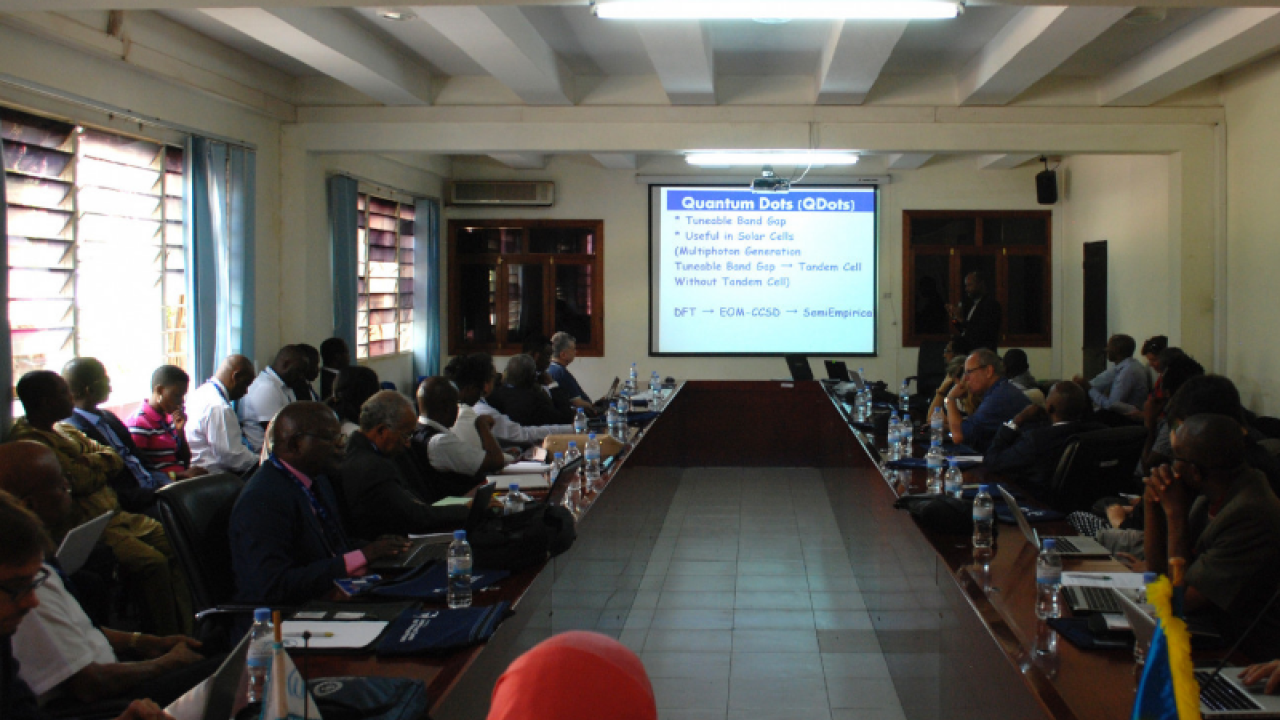
National physics societies exist in many countries, to help scientists network and collaborate, and help bring greater visibility to quality work being done locally. These were all key reasons that the continent-spanning African Physical Society (AfPS) was founded, and why an AfPS International Conference was held at the end of 2020: to gather distinguished African scientists and celebrate their work.
The late famed mathematical physicist Francis K. Allotey of Ghana, an AfPS founding figure, pointed out one clear indicator of the need for a supportive and collaborative AfPS at an event in 2009 in Dakar, Senegal: in 2008, no African country, not even South Africa, ranked in the top 20 in physics publications or citations.
"We know that there are pockets of excellence in physics happening all across the continent," said Allotey. "African physics needs a global on-ramp for the rest of the world so that these pockets can more easily be linked to the rest of the world. We intend for the African Physical Society to be a strong and unified voice for physics in Africa."
Thus, the recent AfPS conference gathered scientists working in the broad area of experimental and theoretical physical sciences to share their latest research, to connect to each other, and to showcase excellence in physics. Attendees are working all over the world and are at different stages of their careers, but they all share a passion for physics.
Occurring in parallel with the African Light Source conference, the AfPS meeting was co-sponsored by ICTP and its partner institute in Rwanda, the East African Institute for Fundamental Research (EAIFR). It was held virtually after the pandemic put a stop to plans to gather in Kigali. EAIFR's Director Omololu Akin-Ojo, one of the conference leaders, welcomed all participants and speakers virtually to Kigali, with the words, "We should work together for African development and advancement."
The AfPS was founded by African scientists at a conference held in Trieste, Italy, at ICTP in 1984. There are many other ICTP connections with the AfPS today, with four ICTP Diploma alumni among the speakers and participants, as well as ICTP Associates, STEP students, and scientists heavily involved with ICTP. Ali Hassanali, one of the conference directors and an ICTP staff scientist, hopes that this is the first of many gatherings for building stronger scientific networks within the African community, with both new faces and researchers from strong existing networks. This conference was organized after a meeting to revive the AfPS was held in conjunction with the inauguration of EAIFR in 2018, where Allotey was honored.
"We had a pretty exciting scientific programme over the three days of the conference," says Hassanali of the AfPS event, which was held from 18 to 20 November 2020. Researchers presented talks on condensed matter physics, climate science, high energy, biophysics, cosmology, nuclear and medical physics, optical physics, applied nanotechnology, quantum computing, and other topics. Along with the 6 directors and 24 speakers, 152 participants joined in for the virtual conference, some contributing to an ongoing virtual poster session and discussion sessions between talks. All of the talks are available to watch on the ICTP Condensed Matter and Statistical Physics YouTube page.
The president of AfPS, Ahmadou Wague, of the University Cheikh Anta Diop in Dakar, Senegal, is very hopeful for the role AfPS can play in developing networks and supporting science in Africa. "It is a good start," says Wague. "I hope that we'll be able to make a real society that can bring together all the African scientists and to try to contribute to the development of science in Africa and especially the physical science." AfPS brings together members and leaders from many different national physics societies in Africa, and includes an affiliated student arm, the African Association of Physics Students.
In the words of Allotey, "We will better organize the African physics community, build better networks on the continent and beyond, be a strong advocate for more resources for physics research and education, and be mentors for students studying physics." This rich gathering promises much more exciting events to come.
















